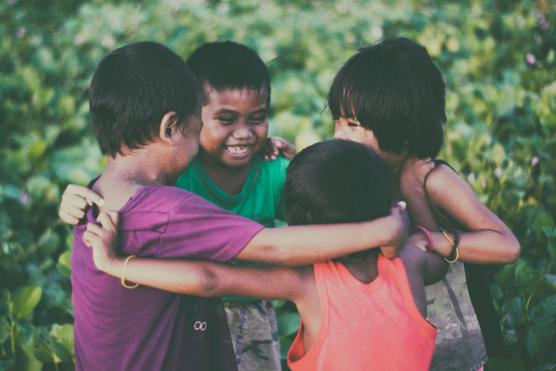Many parents make the mistake of not enrolling their children into some sort of early care and education program with the excuse that the children are too young or so that they would start school later.
What they fail to see is that this is hurting their children in more ways than they can imagine. Early childhood care and education can be of significant importance to children’s development and they can also be very helpful to families with young children.
Moreover, research has shown that early childhood care and education can also lead to significant improvements in short and long-term health-related outcomes for children.
What is early care and education?
Early care and education (ECE) are settings in which children are cared for and educated by people other than their parents or caregivers. ECE aims to improve children’s cognitive and social development.
Some of the typical ECE settings include center-based care and non-parental home-based arrangements. Preschools, prekindergartens, and child care centers are considered center-based care arrangements while being cared for and educated by home-based daycares, nannies, babysitters, and relatives in the home setting are considered non-parental home-based care.
What is not considered ECE, are home visiting programs in which the visitor spends time with children while the parent is present.
Early care and education programs
Child care arrangements are of very high importance to children’s early education and health. These are the settings where children learn all kinds of skills that will later have a lasting impact on their development into adulthood.
When it comes to the distinction between center-based and non-parental home-based care, center-based care is of higher quality and as such is much more expensive and difficult to find than the other one.
Center-based child care programschild care programs are specifically designed to either provide care for children while their parents are at work or to improve children’s cognitive, social and emotional, as well as behavioral development and in that way prepare them for kindergarten.
According to research, in 2016, child care costs have become significantly higher (some 72%) compared to 2001. That’s probably one of the reasons why 60% of children under the age of 6 have not yet been enrolled in kindergarten but they had some sort of non-parental care.
Non-parental home-based care is usually much cheaper and more flexible than center-based care. This is why parents prefer it. Additionally, at-home daycares have that at-home atmosphere which can help some children a lot. The downside is mixed age groups. There are no special groups for newborns or toddlers, everyone is placed in one big group.
Also, another downside is the lack of a backup plan. What happens when the at-home daycare is closed for some reason, when your nanny can’t make it or when your friend who’s been looking after your child is on holiday? It means that you’ll have to call in sick at work and stay home with your child.
The effects of ECE on children
In the first 5 years of life, ECE has a significant impact on children’s cognitive, social, emotional, and physical development. Having quality care and education, and above all healthy development in early childhood, will help prepare children for kindergarten and beyond.
In addition to the above-mentioned benefits of ECE, we can’t not mention that early care and education programs also reduce the educational gaps and create a critical outlet for fostering the mental and physical development of young children.
If the early childhood care and education programs are of high quality they can encourage further education and increase earning potential.
How does ECE affect children’s health?
Quality care and education in the early years can affect short and long-term health-related outcomes for children. The children’s high-quality early care and education opportunities can have a long impact on their health as adults. For example, if a child has been a part of a comprehensive ECE program, which also included health care and nutrition, they were in better health than those who weren’t a part of such a program.
Adults who participated in a high-quality ECE program as children are less likely to smoke, drink alcohol, and use drugs. On top of that, these adults are also less likely to suffer from heart diseases, obesity, high cholesterol, and blood sugar.
On the other hand, children with lower quality education and care are likely to be of poor physical and mental health as adults.
This all brings us to the conclusion that childhood care and education programs play a significant role in future health and well-being as they reduce the risk of risky health behaviors and prevent (or at least delay) the onset of chronic disease in adulthood.
What can affect the ECE opportunities?
Various social and environmental factors can prevent children from participating in some of the ECE programs. Those factors include socioeconomic status, early stress, relationship with parents or caregivers, and access to ECE programs, to name a few.
Socioeconomic status refers to the social standing or class of an individual or a group. This basically means that poverty can be a negative influence on children's early care and education. It’s not strange that children with disadvantaged backgrounds drop out of schools, or repeat grades. These children are also more likely to need special education in their later years.
Early stress can be connected to delays in a child’s development or poor health in the future. Early stress can also negatively affect both the mental and physical health of children. Some of the most common stressors include abuse, poverty, family instability, and even bad neighborhood. Each and every one of these stressors can cause problems for children in the future such as issues with coping and social functioning including difficulty controlling emotions.
What we can take from all of this is that early childhood care and education play a vital role in children’s development – physical, mental, social, emotional, and even behavioral. In addition to all that, ECE also plays a big part in a lasting impact on children’s future health and well-being.
ECE is not merely a preparation for kindergarten or a place where kids spend time when parents are working. ECE is the basis for the healthy life of every child.
















